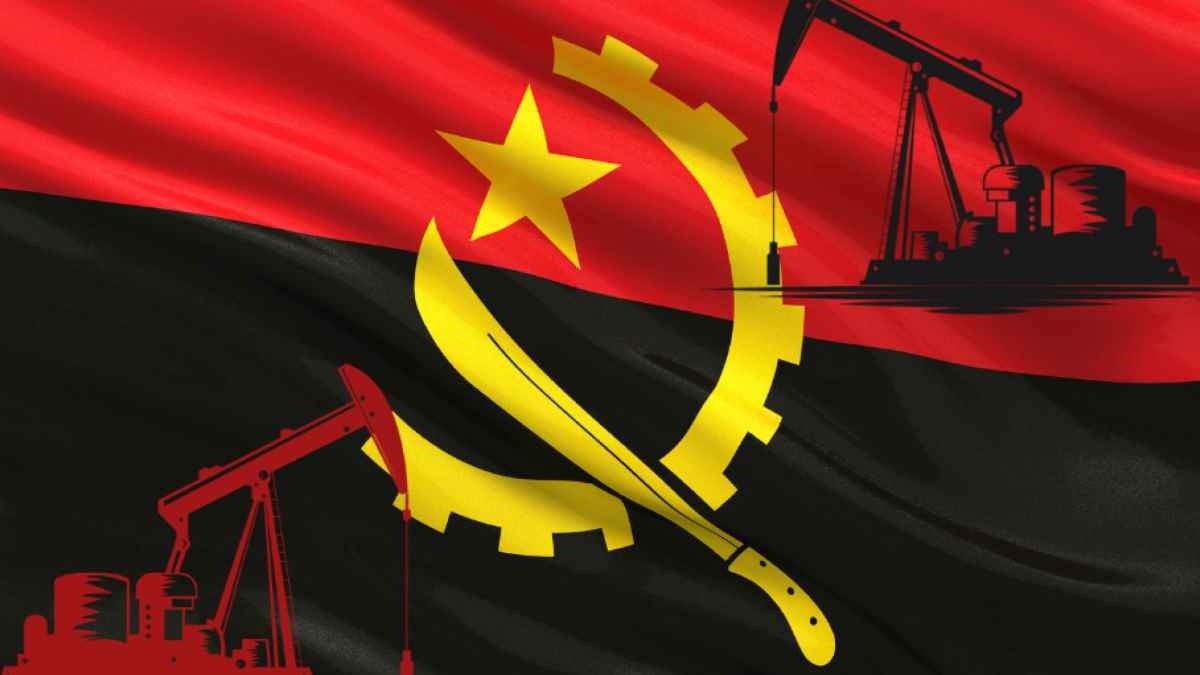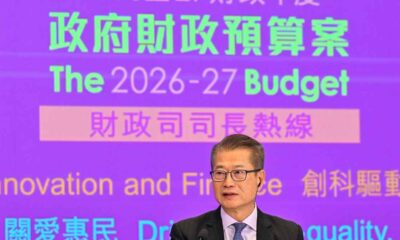Despite the progress made so far, Angola’s government has yet to proceed with plans to sell up to 30% of Sonangol
JOHANNESBURG, South Africa, August 20, 2024/APO Group/ —
By NJ Ayuk, Executive Chairman, African Energy Chamber (https://EnergyChamber.org).
Chevron is already a major player in Angola’s oil sector, where it holds a market share of 26%. However, the U.S.-based major recently took a step that promises to expand its footprint further. Specifically, it announced in mid-June that it had signed contracts for two license areas off the coast of Angola – Blocks 49 and 50, both located in an ultra-deepwater section of the Lower Congo Basin.
Just a few years ago, this deal wouldn’t have been possible.
First, the other party to the contracts — the National Oil, Gas and Biofuels Agency (ANPG) — didn’t even come into existence until 2021. That’s when the Angolan government, led by President João Lourenço, created the agency to serve as the state oil and gas concessionaire — that is, the government body responsible for negotiating petroleum agreements, a role previously assigned to the national oil company (NOC) Sonangol. Diamantino Pedro Azevedo, Minister of Mineral Resources and Petroleum has made it a point that Angola must not choose between economic growth and environmental protection. He crafted solutions to energy transition, reforming the energy sector, while simultaneously increasing market certainties and creating opportunities. For the energy companies, certainty translates into confidence, and confidence leads to more investment, more jobs and more robust growth for Angola.
Second, the type of contracts Chevron signed for Blocks 49 and 50 wasn’t available in Angola until 2020, when they were launched as part of the Angolan plan to reform and incentive investment in its oil and gas industry, an initiative that dates to 2017.
These risk service contracts (RSC), as they’re known, are designed specifically for high-risk projects that are anticipated to have trouble securing investment commitments through the usual channels — that is, competitive bidding processes and the signing of production-sharing agreements (PSA).
Under RSCs, investors provide exploration and development services in exchange for guaranteed payments. This is in contrast to PSAs, under which investors are entitled to claim a share of production, assuming that exploration leads to commercial development.
In other words, the Angolan government’s reform program made Chevron’s deal for Blocks 49 and 50 possible. (It has also made other deals possible, including the RSCs signed in 2020 by ExxonMobil, another U.S.-based giant.)
A New Frontier
Chevron has not yet made many details of its new contracts public. It has not, for instance, revealed the value of the deals.
However, the company certainly seems to view these projects as significant. As William Lacobie, the managing director of the company’s Southern Africa Strategic Business Unit, pointed out last month, Blocks 49 and 50 represent a new frontier for Chevron subsidiary Cabinda Gulf Oil Co. Ltd (CABGOC). Thus far, he noted, CABGOC has focused on Blocks 0 and 14, both located in well-explored sections of the Angolan offshore zone. Blocks 49 and 50 will be “CABGOC’s first operated assets outside of our existing Cabinda concession area,” he said.
But Chevron will not be the only party to benefit. Angola also stands to gain from the new contracts, which will add value to the national economy. This value will come partly in the form of investment and partly in access to the sophisticated new technologies needed to explore (and possibly develop) the ultra-deepwater blocks.
A Sign of Reform
The benefits aren’t limited to money and technology, however. The RSCs for Blocks 49 and 50 also show that the reforms driven by Diamantino Pedro Azevedo are opening up new opportunities for the oil and gas industry.
Let me explain.
Angola has made a number of other changes since 2017 in a bid to encourage IOCs to do business there
The RSCs are attractive to Chevron because they give the company an opportunity to earn money even though Blocks 49 and 50 lie within the ultra-deepwater section of the offshore zone. These areas have yet to be fully explored, and they lack the extensive production infrastructure that supports the U.S. major’s upstream operations at Blocks 0 and 14. In other words, the new contracts allow the company to enter a frontier province and expand its footprint in Angola without incurring too much risk.
At the same time, the deals benefit the country, as they will bring Chevron’s expertise, equipment, and technology to these ultra-deepwater sites, hopefully as a prelude to further investment in the area by other international oil companies (IOCs). This is not something Angola could have accomplished in other ways, as Sonangol does not have the resources needed to explore and develop the blocks on its own, and a competitive bidding process might have failed to attract other investors.
The same is true of ExxonMobil’s deals for Blocks 30, 44, and 45. Without RSCs, these sites, all of which are located within another frontier province known as the Namibe Basin, might never have been able to secure investment commitments.
Other Changes for The Better
The availability of RSCs aside, Angola has made a number of other changes since 2017 in a bid to encourage IOCs to do business there.
For example, it has formulated plans for partial privatization of Sonangol. The NOC had previously functioned more as an arm of the government than as an oil company, serving as the main point of contact for all potential partners, enforcing industry laws and regulations, and operating multiple non-core subsidiaries at the behest of officials in Luanda. Now, though, it has hived off many of its daughter companies and is preparing for an initial public offering on local and international exchanges.
Meanwhile, Angolan authorities have also established a permanent offer scheme that allows ANPG to accelerate the pace of signing contracts by negotiating directly with IOCs on certain projects rather than carrying out competitive bidding rounds. Additionally, it has revised the tax code to offer additional incentives to investors in the petroleum sector and has reformed local content policies in ways that are designed to help IOCs work with local contractors.
Moreover, Angola has taken steps to assist the oil and gas sector less directly. For example, it now permits citizens of 98 countries to visit Angola without a visa, up from 62 previously. This measure was ostensibly designed to facilitate tourism, but it also promises to benefit IOCs since some of the new entries on the list are countries that host the world’s biggest oil and gas operators, such as the U.S., the UK, South Korea, Japan, and India.
Altogether, these measures seem to have helped Angola weather the coronavirus (COVID-19) pandemic in 2020 and other events that disrupted global energy markets in subsequent years. They have also allowed the country to attract investments for new projects. These include deals for construction of the Cabinda and Lobito refineries and for the expansion of liquefied natural gas (LNG) exports to Italy by 1.5 billion cubic meters (bcm) per year.
More Reform Needed
Even so, Angola has more work to do. Reform must continue.
Despite the progress made so far, Angola’s government has yet to proceed with plans to sell up to 30% of Sonangol. It has set a deadline of 2026 for the company’s IPO, but it has also said it will only move forward after taking certain steps to establish the NOC as a vertically integrated oil and gas company that has a substantial upstream footprint and more capacity to meet domestic fuel demand, as the AEC discussed in greater detail in July 2023.
Moving forward, the government will need to ensure that these steps do not falter.
If Luanda fails to take these steps and enact further reforms, it risks losing some of the ground it has gained. It will have a harder time staving off a long-term decline in crude oil output, boosting natural gas production, attracting funding for refining and petrochemical projects that can supply the local market with cleaner fuels, and laying the groundwork for its eventual transition to renewable energy.
Therefore, it must work to make the country more competitive, more business-friendly, and more transparent. It should clamp down on corruption and improve oversight of its sovereign wealth fund, which handles the state’s earnings from oil and gas sales. It ought to team up with investors to look for ways to maximize local content, and it should consider additional tax breaks for IOCs.
Moreover, it should establish a domestic value chain for the country’s natural gas production by encouraging consumption of liquid petroleum gas (LPG). This would allow many more Angolans to gain access to clean-burning fuels and phase out the use of biofuels that contribute to deforestation such as charcoal and wood.
It’s true that Angola’s oil and gas sector has made progress since 2017, thanks to the reforms enacted by the Lourenço administration. But the reform process should not stop here, with the signing of Chevron’s new RSCs. It should move forward so that the country has a better chance to aim for a brighter future.
Distributed by APO Group on behalf of African Energy Chamber.


 Energy4 days ago
Energy4 days ago
 Hospitality4 days ago
Hospitality4 days ago
 Business4 days ago
Business4 days ago
 Events4 days ago
Events4 days ago
 Tech4 days ago
Tech4 days ago
 Politics4 days ago
Politics4 days ago







